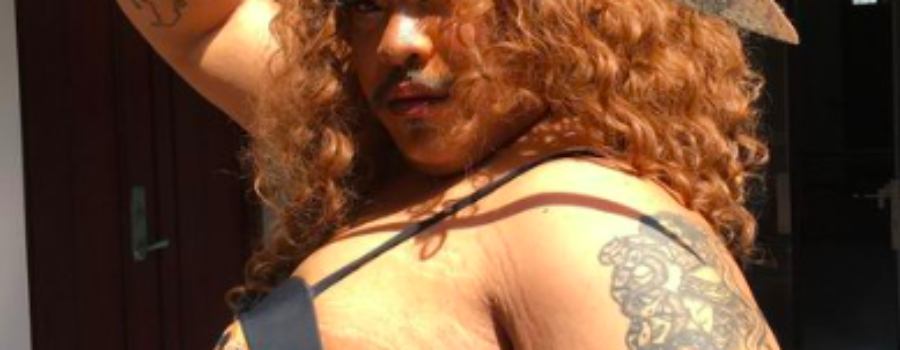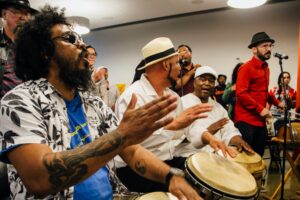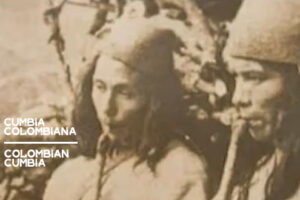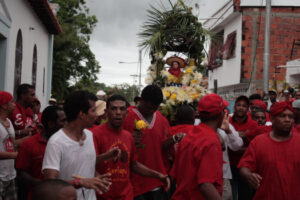by Johan Mijail
“We have been given many names: illegals, foreigners, temporary workers, border violators, undesirables, exiles, criminals, non-citizens, terrorists, thieves, outsiders, invaders, undocumented…”
1.
One of the most decisive, emancipatory effects that activism of sexual dissidence has given me is the sensation of not being alone. Let’s say, rather, that I have found in the Others referentiality through the visibility obtained by their existences and work outside the mandate of cisheterodomination. Loneliness for me, more than the absence of something, signifies nostalgia of the memory of a caress, a hug or a kiss. Solitude for me is the end of the aesthetic-political project of vegetal love. Maybe loneliness is learning to live with a pain.
I stopped feeling alone in my adolescence, when I read Aída Cartagena Portalatín. With her I learned that one is never alone, that we have our stature, that is, our body. Trying to reinterpret that definitive verse “a woman is alone. Alone with her stature.” I consider her a kind of “Dominican queer mother” within the emergence of inviting us to imagine and think, in that deeply transvestitetranshomophobic country, a complex and experimental idea of a “late queerness” (protoqueer) from a feminine-feminist blackness in the generation of surprised poetry dominated by the masculinizing tradition of “Dominican literature”, which does not recognize, save for some cases, rumor, fear, gossip and the closet (Manuel Rueda, Luis Alfredo Torres, Pedro René Contín Aybar or Hilma Contreras) that there is a curved and dystopian line where the people of sexual and gender diversity/dissidence have a time and a place, always, in all of the structuring spaces of life.
We must urgently demolish this idea of loneliness in relation to finding people who have desired and do desire from the same pulses, giving meaning to multiple deviations from the heteronormative. We must find a political breath of human diversity in the exercise of a memory which locates that “I am because others have been” of the African Ubuntu philosophy as something relevant. I don’t dance alone in this. I dance, collectively, with my sisters of activism from understanding, love, tension and controversy.
2.
We write intending to propose interruptions to the hegemonic logics of feeling production. We do it by exercising scriptural pulsations that deny the triumph of heterosexuality as a way to organize life, we do it by trying to produce microbreaks from the norms of representation that place some bodies in supremacist realities and reject others. We write trying to blow up the cognitive production devices that align with racist narratives because the bodies we have do not; neither heterosexual nor white.
From there, we seek to propose activist critiques – situated – that take a position against the hegemonic ways of managing artistic discourses and epistemological production. This is how we have been able to find a place in the currents of circulation where we can negate a sympathy or a “being comfortable” within global capitalism, proposing concepts, practices, experiences, images and the kinds of organization that betray that which usually produces meaning within cultural work. We are thus writing and inscribing ourselves within the contemporary, through a profound NO that permits us to offer an autobiographical horizon in search of collectivization of our brown grief, the ways of inhabiting our Blackness and transvestite presences, the eccentricity we are composed of in our sexualities, deviating from cisheterosexual normativity.
3.
The more I have discovered the infinite performative possibilities of the body, in its sex-gender reality, the more I have been able to know my interior. I have also been able to discover external contexts in relation to how others socialize my body and the changes I am experiencing, in my physical and discursive appearance. Now that I have “masculinized” the appearance of my body in relation to clothing, returning to wearing pants for example or being associated more with people who are recognized and recognize themselves as homosexual men, even within the homonormative roles of “active”, “passive” or “versatile”, I have been able to know much more about my interior, and now the VEGETAL LOVE, as a political aesthetic process of positioning my transvestite body, takes on new readings and meanings. My interior says and states itself like this: IN THIS IDENTITY UNCERTAINTY THE ONLY THING I KNOW IS THAT I HAVE NEVER BEEN A MAN. My body is trans, my body has no homeland. What does the other expect to find when you say trans? What does the other expect to find when you say transvestite? Beyond melanin, why is it easier, in my experience, to be immediately recognized by others as Black and not as trans or as a transvestite? How to think intersectionally about all of this? How to teach others to read between the lines? My life is not my identity and no body is the bearer of an absolute truth. The body can do everything and no one knows everything it can do. What is certain is that my body, being recognized or socialized as trans or transvestite, is less desired. By “homosexualizing” my appearance, my circle of affections and thoughts, I have begun to be more desired, even heterosexual men have felt closer to me; and here is the heavy part: cisheterosexual men who talk to me so that I can introduce them to a girlfriend. Everything that I can socialize or understand as a man generates suspicion, disgust and even fear in me. Men are not within the political subject of the molecular revolution to which I aspire because men have not stopped winning. The molecular revolution to which I aspire has nothing to do with men. We, the historically defeated, want our own countersexual revolution. A sexual-political revolution where we can be that which our interior states: IN THIS IDENTITY UNCERTAINTY THE ONLY THING I KNOW IS THAT I HAVE NEVER BEEN A MAN. The difficult thing is to stop being Black.
The path through the alteration of the sex-gender binary appears in my body from a subversive transvestism that experiences nonconformity to heteronormal hegemony from a “first I am Black” as a critical-political position. On this journey it has been more pleasant for me to think about microscopic spaces of cognitive emancipation.
For me, a critique of colonial power must have the construction of a Black rationality as one of its priorities. I promote the production of a Black thought that becomes body, from the body and with the body.
Speaking from the transvestite does not only refer to an appeal for the subject but also for the discourse. That is to say, although there is a criticism of the binary idea of identity, to be trans implies the construction of a discursive reflection that starts from a proposal of my own existence and passes through spaces of writing and contemporary art.
In that sense, one of the deepest and most revealing learnings that I have experienced through cultural transvestism has been the power to activate solidarities with other transvestites, understanding a language. I became a transvestite/trans to motivate others to be themselves and not so that men write to me “turn on your camera” without even saying “hello” to show me their penis, while they masturbate hidden from their wives, girlfriends or mothers.
I became a transvestite to decolonize my political and historical experience with language. I became a transvestite to establish a decolonial relationship with the cisheteronormative production of writing and images: lives. I became a transvestite not to be the receiving anus of the failure of capitalistic masculinity and heterosexuality, but to take a position from a feeling-thinking that questions the heteronormative tradition of sex and the clinical and colonial discourses of understanding gender as a culture of the continuity of biologism and binary. What does it mean to be trans? What does it mean to be trans? What is it like to be Black?
I insist: What does it mean to be trans? What does “I am a transvestite” mean in the Caribbean? How to create a Dominican body that questions the cisheteronormative? How can I politicize my body in the face of tigueraje (deception) as a hegemonic local culture? How to talk to Yemayá about this? Why does being in the country where I was born and assigned a gender that is not mine scare me? Why in the Dominican Republic doesn’t my questioning of heteronormativity produce a means of theoretical-academic work within art spaces like in the other countries where I have been or lived? Why isn’t the museum interested in me there? Why can’t I do my cuir (queer) writing workshops at the university? Where are the Black Dominican transvestites? Where is Nairobi or La Boris in the history of the national body?
4.
Call her by her name: Nairobi.
Your body appeared lifeless in a public plaza when the global feminist schedule and agenda warn that there are some days left until March 8th. Almost at the same moment that I found out about your death, I received several questionnaires by email, which if answered would become interviews. They insistently ask me about transphobia and racism. They want me to talk about the experience of the meanings that my transmarica and Afrodescendant body activates in the Dominican heterosocial context. They want me to explain about the historical omission of our bodies in flight from heteronorm, to say something close to feminism, about the Dominican political crisis due to the suspension of municipal elections, about the absence of laws that protect our bodies, they ask me about Alexa’s transfemicide in Puerto Rico.
The questions are asked of me, but they have to do with your death. They are also asking me about your lifeless body in a public plaza. Writing this text I can’t stop imagining your smile. Writing this text I can’t stop thinking about the depth of your hugs when we meet, about your body as a Black and trans woman.
An official cisgender voice says that your death was due to a heart attack. Many of us doubt it because the authority is racist and transcendent. The day we organized an honor for your passage through this life, many of us did not understand what had happened. You moved a few meters and then you didn’t come back. Now we want to move because anyone could be next. “I don’t believe that dissident bodies, trans bodies, Black bodies, non-hegemonic bodies, have the luxury of dying from natural causes,” the Black activist Johanna Agustin Federico wrote in an Instagram story, and I believe her because you have to become eternal. May your sexual resistance expand the dialogue about the politics of bodies that desire, think, and exist outside of the imposition and biopolitical control of bodies.
Queremos un castillo de flores para ti repudiando ese trato inicial de la prensa tratándose de hombre, cuando una y otra vez hemos dicho que en esta incertidumbre identitaria lo único que sabemos es que hombres no somos. Es muy extraña esta escena. Ninguna trans negra muere. Ninguna trans negra muere si no es olvidada. Nairobi vivía en República Dominicana. Nairobi vive ahora en nuestras memorias trans.
















